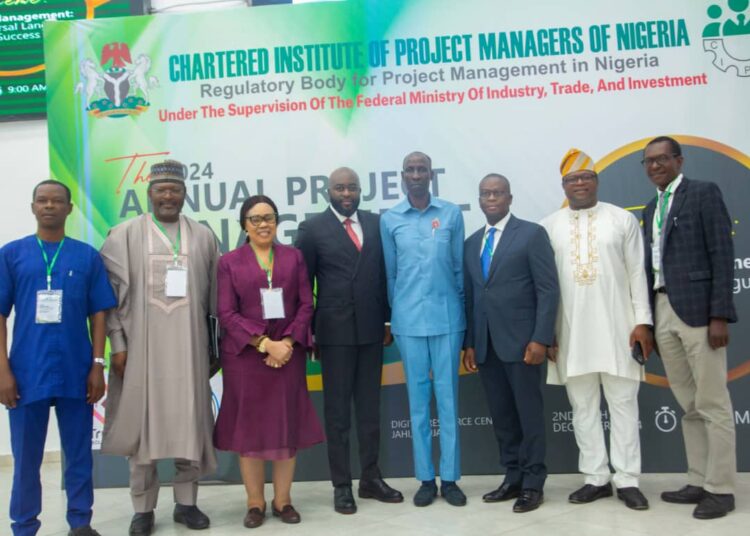The Chartered Institute of Project Managers of Nigeria (CIPMN) will begin enforcing strict certification requirements for all project managers—both local and foreign—starting next month (January 2025). This decisive action aims to address the growing problem of failed and abandoned projects across the country and ensure that only qualified professionals are entrusted with managing critical national projects.
During the 2024 Annual Project Management Conference in Abuja, CIPMN registrar Henry Mbadiwe, made it clear that beginning next year, non-compliant project managers will face serious consequences. He said all project managers would be required to regularise their certification within 12 months of beginning work in Nigeria, with penalties for those who fail to comply.
“Any project manager who comes from outside Nigeria, whether the person is a foreigner or a Nigerian who has lived abroad, and is here to manage projects, the law states that within 12 months of this act being established, you must regularise your certification and licensing with the institute.
“This law was established in 2018, and it has been more than 12 months. So, every foreign national in Nigeria, regardless of the company or organisation you work for, must be licensed to lead or deliver projects in Nigeria. I am calling on all employers or those who brought you in to consult or contract for them in Nigeria to comply.
“If you are a foreign national, obey the law of this country. Come and get licensed, and let us work together to build the project management sector in Nigeria, reduce the rate of failed projects, and deliver value for Nigeria.
“We have not started enforcement yet, but compliance has not been wonderful; it has not been great. However, we will take it more seriously next year. Right now, we are trying to get them to do what is right. Many of them may not comply willingly, but I assure you, I will not stop. I will go after these companies, no matter who they are,” he stated.
“We are no longer tolerating non-compliance,” Mbadiwe declared. “Starting in January 2025, we will hold every project manager accountable. No project, no matter the sector, will be led by anyone who is not a certified professional. This is non-negotiable.”
Mbadiwe explained that enforcing certification standards would dramatically improve project execution, enhance accountability, and reduce the risk of failed projects in key sectors such as construction, healthcare, and finance.
CIPMN chairman Olabode Afolayan, echoed this message, stressing that the consequences of non-professional project management have been devastating, costing lives, resources, and valuable time. “We’ve lost too much—lives, money, and time,” Afolayan said. “The time for action is now. We will enforce the law, and no one will be exempt.”
The conference also saw input from other industry leaders, including the director of ICT at the National Pension Commission (PENCOM), Michael Popoola, who highlighted the importance of professional project management in sectors like pensions. He underscored the need for continuous development and the adoption of agile methodologies to navigate uncertainties and ensure successful project delivery.
Head of monitoring and development at the Securities and Exchange Commission (SEC), Tarfa Makyur, emphasised that certification is critical in high-stakes sectors like capital markets. “In the capital market, certification isn’t a choice—it’s essential,” Makyur said. “Only certified professionals can ensure stability and foster growth.”





